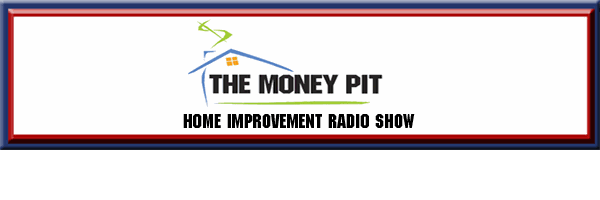By Holland Cooke
Consltant
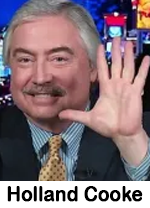 Feel busy? Try keeping-up with these four:
Feel busy? Try keeping-up with these four:
— Like George Clooney’s character in “Up In The Air,” Mike McVay attained an elite status earned by only a handful when Continental Airlines was the principal carrier in Cleveland, his home base. And he’s still at it, consulting full-time since 1984.
— “Rhode Island’s anchorman” is ultimate split-shifter Gene Valicenti, who hosts 3 hours of radio on WPRO at 6AM (11 years), then at 6PM he co-anchors on NBC10 TV (31 years), both top-rated shows.
— For 10 years I’ve been riding 138 miles with owner Jay Philippone from his home in Pittsburgh to Connect FM + Sunny 106 in DuBois PA. He lived there when his children were young, then moved to the Burgh’ when he bought stations in nearer West Virginia; and “because you get home quicker from Pirates and Penguins and Steelers games.”
— And for 20 years I’ve followed owner Paul Gleiser “106.3 miles door-to-door” from his home in Dallas to KTBB + KRWR in Tyler-Longview. Why the trek? “My wife gets to do what she wants to do” in the culturally rich Metroplex, and where she is a university professor.
How DO they do it?
“On the cusp of my 65th birthday,” Jay laughs, “that’s a good question!” As bosses, he and Paul are innately motivated. Gene sets the alarm for 5AM, but – because “I just can’t wait to get on the radio — I find myself getting up earlier,” to execute a show he and his producers mapped-out the day before.
Their love for our craft is clear. Mike says he’s “up late and up early because l absolutely love what I’m doing. I really don’t feel like I’m working for the most part.”
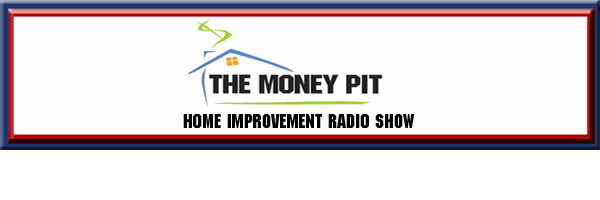
Their routine seems anything-but
Gleiser has gone-though “a lot of tires” making his trans-Texas trek 4 days a week since 1991 (on Wednesdays in his ATW Creative Services studio in Dallas). And he makes the most of all those miles: “I’m in the News and Talk business, so I use that time to consume news and keep myself current.” As does Philippone; and all that back-N-forth time affords them an invaluable perspective listening in-car, where AM/FM radio is still #1.
Mike McVay travels 3 weeks a month (down from 48 weeks X 5 days pre-pandemic), unlike Gene Valicenti’s 6AM + 6PM gigs that keep him closer to home. And, yes, Gene naps between shows (“30 minutes, longer makes it worse”). But by 5PM he’s in the bustling NBC10 newsroom, where “I start to work on the 6P TV script” he’s given, “which I go through and rewrite almost every story and tease, to make the copy sound like me.”
Technology: Friend or foe?
“Yes!” Gleiser quips. “There are only tradeoffs.” On the plus side, the pandemic-necessitated telecommuting that has transformed so many other industries has shown radio new options.
Jimmy Failla’s first affiliate remote was from KTBB, where – minutes before airtime – Internet service failed. If I hadn’t seen it in person, I wouldn’t have believed that we fed New York via an iPhone hotspot. And as Failla’s frequent fill-in, Paul has hosted the show from KTBB and from home in Dallas and in-studio at Fox/NY, and my trained ear can’t hear the difference. And when Valicenti does his radio show at home Monday and Friday mornings, he can even do his live NBC10 TV simulcast hit there.
Philippone raves about the Radio.cloud automation system “that allows us to work and manage the product and diagnose transmitter problems from anywhere.” But he confesses that “I’m still working on a perfect way to manage my In box, to be able to keep-up” with the volume of communication and information, the velocity of which is “lots faster than pre-Internet/pre-Email days.”
During my 17 years as McVay Media news/talk specialist, I learned lots from Mike about keeping organized. “Obsessive about detail and staying focused on the job at hand,” he types meeting notes in real-time. “I do everything I need to do as quickly as it can be done,” which also means making the most of all that time in-flight. He warns managers to “prioritize properly, so the crisis of one person doesn’t become a crisis for someone else.”
It takes a team
Gene Valicenti admits “I got lucky with two good producers,” one at WPRO the other at NBC10. “They’re both fast and technologically-savvy,” and his radio producer “can quickly find something during commercial breaks.” He talks with both producers several times each day, and they talk to each other. “It’s all about cross-promoting, cross-purposing” on-air material from station-to-station, win-win.
Paul Gleiser IS his stations. He has a PD, but he himself is owner, GM, Sales Manager, Promotion Manager, and choosy endorsement spot talent. “It’s an unusual management structure,” in which “everybody is in Sales, and everybody knows their job, and has tenure, almost zero turnover” (the last couple openings were because two longtime staffers died suddenly, too young).
Jay Philippone is at his Pennsylvania stations Mondays (interacting with each staffer and finalizing his visit to-do list) and Tuesdays (“meetings day”) and Wednesdays (follow-through). He has a full-time GM and “she’s been on the job 30 years next month, someone to make sure things get done and ‘the trains run on time.’”
Hitting Pause
Mike urges “find time to turn it off. Let your brain be on rest, and entertain yourself.” He’s a sports fan, and binge-watches his favorite TV shows. Jay will “take a half day and not work, just read,” and he calls that decompression “really, really worthwhile.”
But retirement? McVay: Nope. Gleiser: “And do WHAT?” Philippone: “I’ve been in radio since I was 19 and I love what I do.” When I ask “If you didn’t do this?” Jay admits “I don’t have an answer,” and he thinks “it would be easy to lose a sense of direction.” As did his retired friend who said “it sucks.”
Valicenti is struck by the reach of WPRO’s station stream: “You would not believe how many rely on it,” and when it hiccups “we hear about it!” And not just from locals using the station app and smart speakers. He has a big following in Florida, seasonal snowbirds and Rhode Island ex-pat retirees who are frequent callers. When the time comes? “Maybe doing a radio show from Florida,” where – vacationing recently in Naples – he was greeted by New England accents when spotted in restaurants callers had recommended.
Holland Cooke (HollandCooke.com) is a consultant working at the intersection of broadcasting and the Internet. He is the author of “Confidential: Negotiation Checklist for Weekend Talk Radio” and “Close Like Crazy: Local Direct Leads, Pitches & Specs That Earned the Benjamins.” Follow HC on Twitter @HollandCooke
Share this with your network
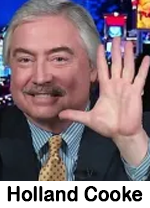 Here’s actual news copy, from Joe Connolly’s business report one morning on WCBS, NY: “One third of all domestic flights are now late, by an average of one hour.”
Here’s actual news copy, from Joe Connolly’s business report one morning on WCBS, NY: “One third of all domestic flights are now late, by an average of one hour.”


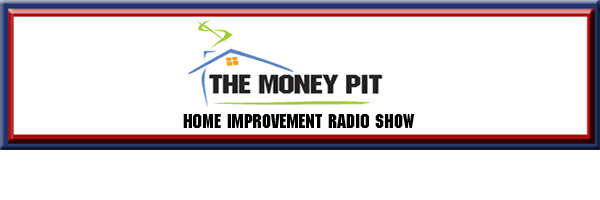
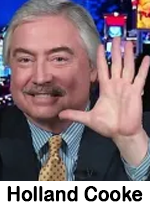 I am always impressed when I see-and-hear radio and TV stations swapping product.
I am always impressed when I see-and-hear radio and TV stations swapping product.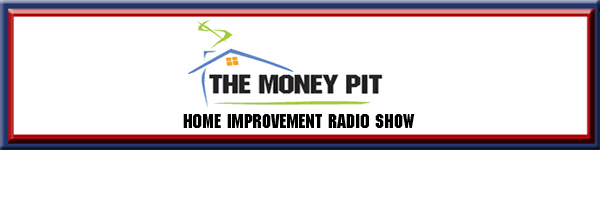
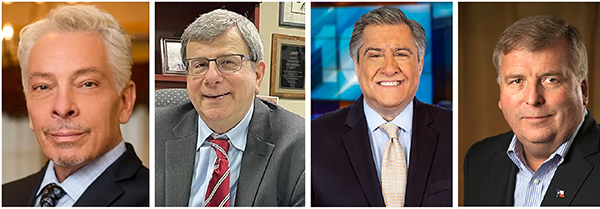
 Feel busy? Try keeping-up with these four:
Feel busy? Try keeping-up with these four:
 Thanks to those who sent comments on last week’s column “
Thanks to those who sent comments on last week’s column “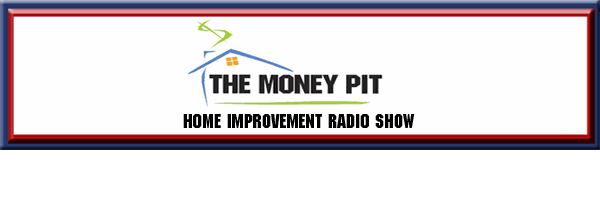
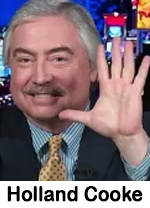 Thanks to those who sent comments on last week’s column “
Thanks to those who sent comments on last week’s column “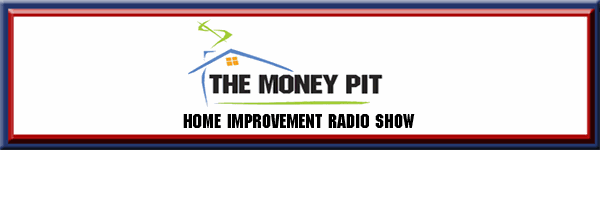
 Radio talkers: What is this hour about? How will listeners benefit from listening? And how long do you expect them to wait to hear that?
Radio talkers: What is this hour about? How will listeners benefit from listening? And how long do you expect them to wait to hear that?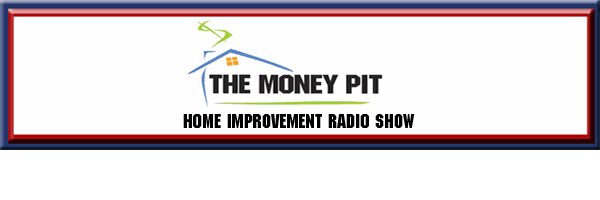
 I asked my pal, longtime radio seller, now retired: “How often were you asked, ‘How much would you charge for ONE commercial?’”
I asked my pal, longtime radio seller, now retired: “How often were you asked, ‘How much would you charge for ONE commercial?’”
 Many news/talk stations broker weekend hours to professionals who host ask-the-expert shows to attract new clients.
Many news/talk stations broker weekend hours to professionals who host ask-the-expert shows to attract new clients.
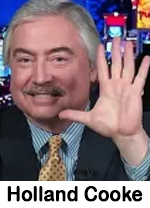 The stations I work with make big money with live endorsement spots delivered by familiar local on-air personalities. Remember them? With most AM/FM broadcast hours now robotic or non-local, your relationship with the listener is precious and can be leveraged… carefully.
The stations I work with make big money with live endorsement spots delivered by familiar local on-air personalities. Remember them? With most AM/FM broadcast hours now robotic or non-local, your relationship with the listener is precious and can be leveraged… carefully.
 Those are the two consultant buzzwords that hosts I coach are hearing in their sleep. And a couple more “E” words: Empathy and Empower.
Those are the two consultant buzzwords that hosts I coach are hearing in their sleep. And a couple more “E” words: Empathy and Empower.
 She was the agent I enjoyed working with most over three decades I was an active real estate investor. We remain good friends, and her technique informs the work I do coaching agents – and attorneys and financial advisors and other professionals – who host ask-the-expert radio shows.
She was the agent I enjoyed working with most over three decades I was an active real estate investor. We remain good friends, and her technique informs the work I do coaching agents – and attorneys and financial advisors and other professionals – who host ask-the-expert radio shows.
 Fellow longtime, long-ago DJs: You know what I’m talking about. And it’s a life sentence, eh?
Fellow longtime, long-ago DJs: You know what I’m talking about. And it’s a life sentence, eh?
 THE Best Bit I’ve Heard This Month was by Gene Valicenti, morning host, WPRO-AM/WEAN-FM, Providence.
THE Best Bit I’ve Heard This Month was by Gene Valicenti, morning host, WPRO-AM/WEAN-FM, Providence.
 Mark Twain reckoned that “the difference between the almost right word and the right word is the difference between the lightning bug and the lightning.”
Mark Twain reckoned that “the difference between the almost right word and the right word is the difference between the lightning bug and the lightning.”
 How will AI tools like ChatGPT impact the way we work? The clues are everywhere. Several client stations have automated weather, and even with your consultant’s trained ear, I had to ask. And yes, she’s a robot.
How will AI tools like ChatGPT impact the way we work? The clues are everywhere. Several client stations have automated weather, and even with your consultant’s trained ear, I had to ask. And yes, she’s a robot.
 Warning: The Commonwealth of Massachusetts certified me to teach high school English, in the early 1970s, the last year certifications were for life. Though I was lured-away by VU-meter hypnosis, I still carry a red pen. And radio news has it running-dry.
Warning: The Commonwealth of Massachusetts certified me to teach high school English, in the early 1970s, the last year certifications were for life. Though I was lured-away by VU-meter hypnosis, I still carry a red pen. And radio news has it running-dry.
 Ever lost your phone? It’s an instant sick, sinking feeling. It’s quaint to even call it a “phone,” because it’s…everything. Including us. Like the transistor radio Boomers toted in our youth, it’s audio in your pocket.
Ever lost your phone? It’s an instant sick, sinking feeling. It’s quaint to even call it a “phone,” because it’s…everything. Including us. Like the transistor radio Boomers toted in our youth, it’s audio in your pocket.